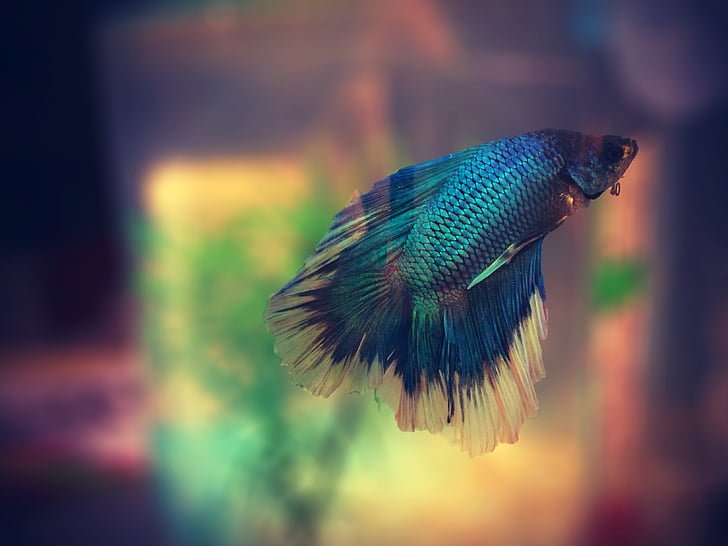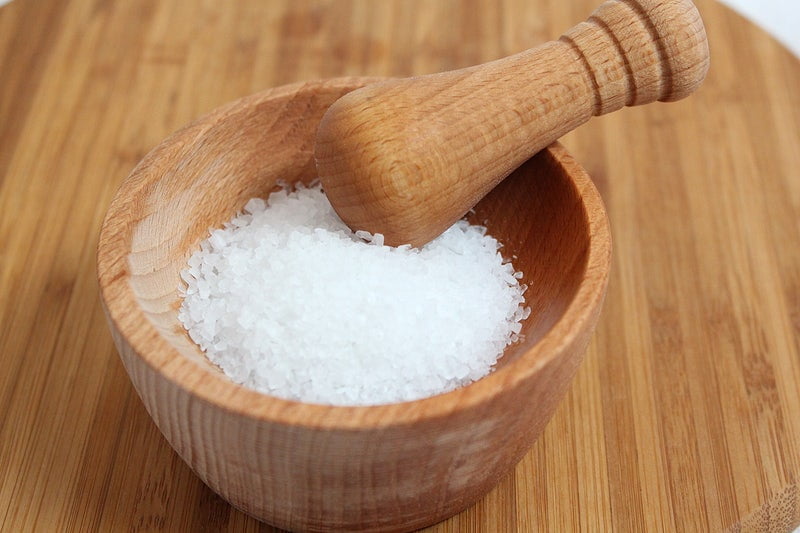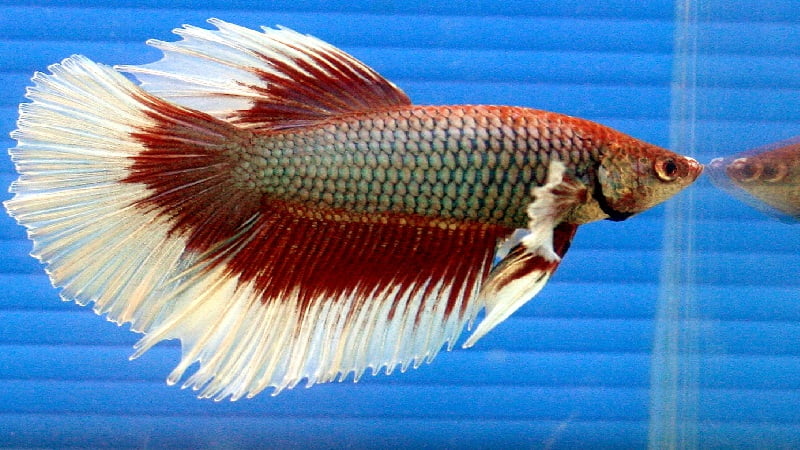Have you ever seen a betta fish with ripped fins? It’s not a pretty sight. Bettas are known for their beautiful fins, but when those fins become damaged, it can be hard to know how to treat them. In this article, we’ll discuss the reasons why betta fish fins look ripped and some incredible tips to help you treat your betta’s fins.
How Did My Betta Fish Fins Look Ripped?
Betta fish are a type of freshwater fish known for their beautiful fins. However, sometimes betta fish fins can become ripped or torn. There are a few different reasons why this might happen, and knowing how to care for your betta fish can help prevent it.
Fin Loss
You can tell that your Betta’s fins have been damaged by the physical ripping that causes them to appear ripped. If your Betta becomes violent, it could be due to a variety of factors, including boredom, the presence of other aggressive fish in the tank, or even the tank’s decor.
Tank Decor
Consider if it’s time to update your home’s design. The sensitive fins of these fish can become entangled in anything that does not seem smooth or soft to the touch. Items like as artificial plants, some driftwood, and pebbles are examples of tank decor that will be too sharp for your Betta to rub up against when swimming, so avoid using these.
Fish Biting
Make certain that your Betta’s housemates are re-evaluated. Contrary to common opinion, Bettas may be kept in the same tank as other fish if the proper circumstances are met. Another aggressive fish, on the other hand, may decide to target your betta fish, nipping and biting at its fins and fins.
Boredom
Betta aquariums are frequently sold in small, visually beautiful containers at pet stores. It is just not true that those will be sufficient to meet their needs in their current situation. They require an aquarium with a minimum capacity of 20 gallons. Your Betta will grow bored if there isn’t enough space to swim around in. This can result in antagonistic behaviour toward other creatures in the environment and can even be a threat to itself.
Fin Rot

Stress can weaken your Betta’s immune system, leaving them more vulnerable to bacterial and fungal illnesses such as fin rot, which can be prevented by maintaining a healthy tank environment. Discolouration can be seen on the ripped fins due to this ailment. The water quality in your aquarium or the manner in which your Betta is fed might be the source of the problem.
Improper Water Temperatures
75 to 80 degrees Fahrenheit (25.5 to 26.5 degrees Celsius) is the perfect temperature for your betta fish aquarium. Your Betta’s metabolism slows down in colder water, making it appear sluggish, while in hotter water, your Betta becomes hyperactive, frantically darting around the aquarium and digging into the gravel. If your Betta is exposed to stressful situations like these, it will be less able to fight germs and fungus in the water.
There’s Too Much Fish
Your aquarium will quickly wreak havoc on your water quality. You may use this rule of thumb: 1 inch of fish per 1 gallon of water. It is also essential to ensure that all fish in your tank have comparable habitation and social demands to avoid conflict.
Inconsistent Feeding
Your betta fish’s health and immunity will suffer if you underfeed or overfeed it. Specific vitamins and minerals may be deficient or oversupplied. Also, overfeeding doesn’t guarantee that they’re eating, and the additional flakes might be hanging about the dish and contaminating the water. Even if your tank is on the bigger side, your fish won’t have any trouble finding and eating the food you offer.
Deterioration of Natural Mucous Barrier
The fish’s mucus layer provides physical and chemical protection against dangerous germs and fungus. Any stressor event breach might damage your Betta’s mucus barrier. Your fish is more susceptible to fin rot if it lacks a healthy covering.
How To Treat Your Bettas Fin Loss
Maintain A High Water Quality

Making certain your betta has high-quality water is one of the most crucial considerations. If your betta is losing his or her fins, it’s even more critical that you do this since he or she will be more susceptible to illness.
If you want to maintain a high level of water quality, you should do more water changes. Changing roughly 10% of the water each day or every other day is an excellent place to start when using this strategy.
In addition, you should do frequent water tests to ensure that there is no ammonia in the water. If exposed to ammonia, your betta’s immune system will be compromised, which can eventually poison him.
Ensure that your betta is kept in an appropriate tank for his size and needs. Despite what you may have read or been told, Betta fish cannot be kept in fish bowls or tanks less than 1 gallon in size. Your betta should be housed in a tank with 5 gallons of water. Besides, it should feature a heater and air filter.
In order to keep your betta happy and healthy, you need to make sure he isn’t anxious or unhappy, both of which can weaken his immune system, increasing his risk of developing fin rot and other ailments.
There are additional difficulties in controlling the parameters in a smaller tank. In addition, a betta’s immune system will suffer if the settings are altered too frequently.
Feed Him Daphnia
Daphnia may or may not aid betta fish with fin loss, but there’s no harm in giving him some as part of a well-rounded diet.
Daphnia, for example, is said to be a good source of vitamin B, which can aid in the regeneration of fins as well as speed up the process of regrowth.
A Salt Solution For Aquariums

Additionally, you might want to experiment with adding salt to the aquarium. Your betta’s slime coat will look better if you add aquarium salt to the tank. A healthy slime coat is essential for protecting your betta from parasites, germs, and fungal illnesses when its fins are injured!
Add API Stress Coat
API Stress Coat is another option if you don’t want to use aquarium salt. It’s a betta stress reliever and a water conditioner all in one. He’ll be less likely to bite his tail if he gets some stress release.
Remove Complicated Decoration
Examine your tank’s décor if you believe decorations have torn your fish’s fins. You may use a pair of pantyhose to see whether your decorations are too sharp or abrasive by stretching them over the object in issue and gently pulling them in place. If the pantyhose is too sharp, it will rip. In addition, any low-cost plastic plants are likely to be too spiky.
Modifying Water Temperature
In order to correctly manage and monitor the temperature of an aquarium, You should use an aquarium heater and an underwater thermometer in conjunction. Consider the temperature of your house, particularly during the summer months when it is substantially warmer. Place your aquarium in an area that isn’t near heaters or windows exposed to sunlight. Using an air pump with a bubbler will help chill the water surface, increasing evaporation.
Video: Betta’s Fins Look “Shredded” Overnight? Why This Might Happen
FAQs
Does betta fish heal their fins normally?
From a few days to several months. If the ripped fin is severe, it may take longer to heal. For the optimal recovery periods, respond promptly and adequately to the stressor.
What are the symptoms of growing back fins?
By inspecting the fins, you can see if they are regrowing. It’s the regrowth if you see a transparent membrane on the end of your betta’s fins. It resembles saran wrap in appearance and is quite delicate.
The more time passes, the more you’ll notice a change in the clear membrane’s color; nevertheless, you should be aware that the color you see may not match the original.
Betta fin rot: what does it look like?
Fin rot manifests itself in the early stages as discolouration of the margins of the fins, which appear milky on the edges.
Final Thought
In conclusion, it is evident that betta fish fins can look ripped for a number of reasons. Fortunately, there are some incredible tips to treat ripped fins. To ensure your betta fish have healthy and beautiful fins, be sure to follow these tips!
References:
https://en.wikipedia.org/wiki/Fish_fin

Annette M. Chaney is an experienced marine biologist with over 20 years of experience as an aquarist and fishkeeper. She started her first aquarium at a young age, filling it with frogs and goldfish obtained from the ten-cent pet store.
Annette grew up caring for and breeding African Cichlids, which led to a hobby in high school that doubled as a profitable means. Attending Reed College gave her time to solidify herself as an accomplished aquarium caretaker with an eye for sales. After that, from 2009 – 2013, she studied at Roger Williams University – one of the most prestigious universities for Aquaculture and Aquarium in USA. She is the founder of AquariumCircle since 2010.
